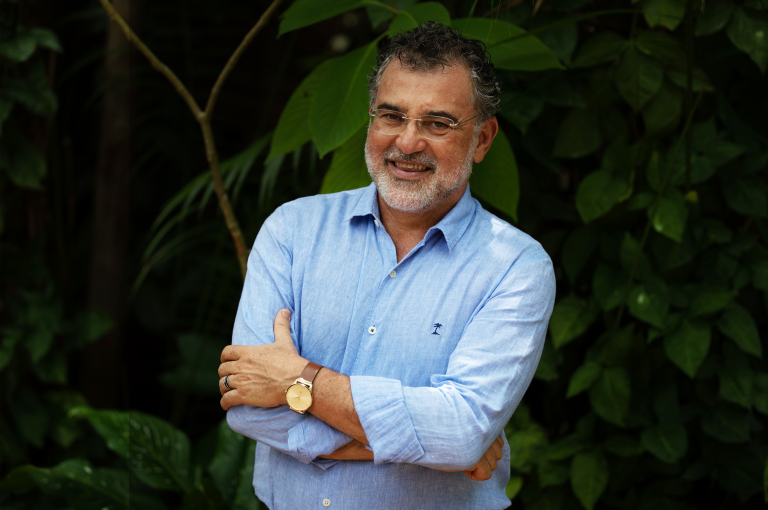São Paulo – The Foundation for Amazon Sustainability (FAS) shines as a finalist in the United Arab Emirates’ Zayed Sustainability Prize 2023. Established 15 years ago, the Brazilian institution works for taking care of the people of Amazon, protecting the forest, and reducing deforestation and degradation. Other two organizations, one from Canada and one from Namibia, are finalists in the Climate Action category. The winner will be announced on December 1st, during the U.N. Climate Summit, COP28.
FAS general superintendent Virgilio Viana (pictured) said that being a Zayed prize finalist is yet another recognition “that motivates us to work towards a more sustainable world” and achieving the prize will give greater visibility to the foundation, which has grown in Brazil and has a strategic plan for widening its global visibility. Conquering the prize, Viana says, will help the institution lure more investments and new partners.
“This will be very important not only for FAS but for the more than 800 communities that now benefit from our actions or the 35 million acres of Amazon Forest that are protected by our work. This prize will allow us to strengthen and extend our activities into other territories of Amazonian countries, and increase our cooperation with Africa and Southeast Asia, too. Therefore, this prize is something we hope to win this year,” said Viana.
A forest of challenges
Viana explains that the approach of the institution consists of “taking care of people that take care of the forest,” which leads it to deal with poverty and deforestation. He stresses that 50% of the forest is made up of Indigenous territories and protected areas. However, Viana cautions that the Amazon is getting closer to the tipping point, that is a point at which an ecosystem can no longer cope with environmental change, and the ecosystem suddenly shifts from one state to another. Also known as point of no-return, this has already been reached in some regions of the forest.
“The protection of the forest is not only a matter of policing and law enforcement but of engaging the Indigenous peoples and traditional populations that are guardians of the forest in this fight against illegal logging, illegal gold mining, deforestation and degradation,” said the FAS general superintendent.
He adds that the social technology – a way of using human, intellectual and digital resources in order to influence social processes – developed by the foundation was essential for cutting back 60% of the deforestation across an area where 800 communities impacted by the FAS live. Furthermore, he says that solutions developed by the foundation are ready to be shared with other institutions, other countries’ governments that accommodate the Amazon and African nations. Congo, for instance, faces some challenges similar to those faced in the Amazon.
Established by Viana, FAS is an independent institution with 143 employees and 344 partners that share technical knowledge, hold activities in partnership with FAS and resources that aren’t only financial.
The Zayed Sustainability Prize was established in 2008 as a tribute to sheikh Zayed bin Sultan Al Nahyan has been celebrating sustainability pioneers, from high schools to small- and medium-sized enterprises to nonprofits. In total, over 378 million people across 151 countries, and counting, are now benefiting from the solutions developed by its 106 winners. This year’s edition elected 33 finalists across six categories Health, Food, Energy, Water, Climate Action, and Global High Schools. The Climate Action category was established this year.
In the Health, Food, Energy, Water and Climate Action categories, each winner receives USD 600,000. Each of the six winning Global High Schools receives up to USD 100,000.
Translated by Guilherme Miranda









